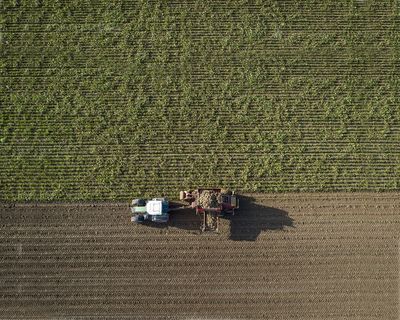AtlasIntensive AgricultureAikaterini Katsouli, Mateus Rosa da Silveira, Nick Ulrich, and Sofia Urzainqui de Miguel

To provide enough food production, directly or indirectly, Switzerland is highly dependent on intensive agriculture, therefore many natural places, forests, and meadows are threatened to provide space for monocultural fields. By raising a single crop, farmers can use heavy machinery, which diminishes the costs of labour and increases the efficiency of activities in terms of time and profit. On the contrary, the mono-crop fields in Switzerland have increased the risk of disease and pest outbreaks that force the use of pesticides and herbicides, which pollute rivers and streams. Despite initiatives from the Swiss government, most agricultural farms still make use of chemicals that degrades the quality of soil, which loses its nutrients and needs fertilizers to regain its abilities. Overall, monocultures are exhausted methods of production, resulting in soil degradation, reduced biodiversity, and increased economic risks. Can there be a sustainable intensification of agriculture? What are the future solutions for sustainable food production? Which practices exist in Switzerland and Canton Zurich?